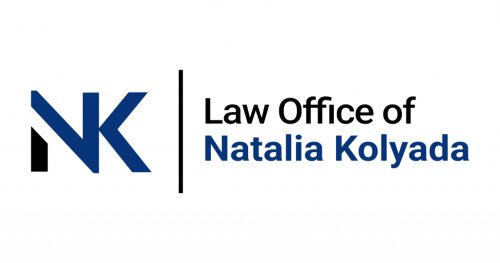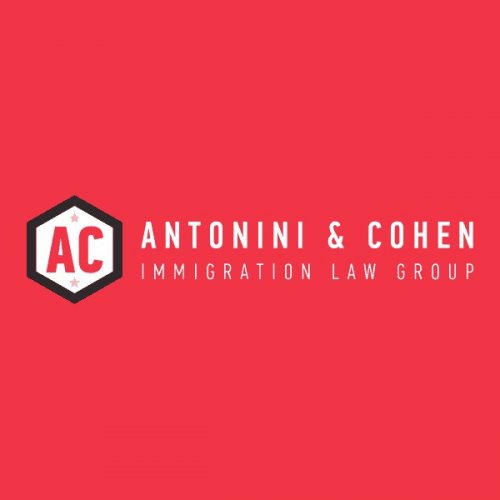Best Immigration Lawyers in Georgia
Share your needs with us, get contacted by law firms.
Free. Takes 2 min.
Or refine your search by selecting a city:
List of the best lawyers in Georgia, United States
United States Immigration Legal Questions answered by Lawyers
Browse our 4 legal questions about Immigration in United States and read the lawyer answers, or ask your own questions for free.
- Changing my temporary residency card in Portugal to permanent!
- Good day! I have been living in Portugal for 4 years and next year I need to change my temporary residency to permanent one. My questions: What documents do I need? How long does it take! When is the starting of 5 years? How much does it cost? I am... Read more →
-
Lawyer answer by mohammad mehdi ghanbari
Hello and greetings!Thank you for reaching out. Regarding your permanent residency application in Portugal, here are some important points: You will generally need your valid passport, proof of address in Portugal, your current residency permit, a clean criminal record (from...
Read full answer - Changing my temporary residency card in Portugal to permanent!
- Good day! I have been living in Portugal for 4 years and next year I need to change my temporary residency to permanent one. My questions: What documents do I need? How long does it take! When is the staring of 5 years? How much does it cost? I am... Read more →
-
Lawyer answer by mohammad mehdi ghanbari
Hello and greetings!Thank you for reaching out. Regarding your permanent residency application in Portugal, here are some important points: You will generally need your valid passport, proof of address in Portugal, your current residency permit, a clean criminal record (from...
Read full answer - How do I get certificate or acceptance?
- US is asking for certificate of acceptance for my son born in Ulsan 13years ago for the purpose of our immigrant visa. He was not registered at the local district office at the time as we were told as non nationals, it was not mandatory. I don’t know how to... Read more →
-
Lawyer answer by mohammad mehdi ghanbari
Hello, good morningTo obtain a Certificate of Acceptance for your son born in Ulsan, you will need to report the birth to the local government office (Si, Gu, Eup, or Myeon) corresponding to the place of birth. Even though the...
Read full answer
United States Immigration Legal Articles
Browse our 2 legal articles about Immigration in United States written by expert lawyers.
- H-1B Visa Outlook 2026 US: Wage Based Selection & Fees
- The US immigration system is statute-driven (mainly the Immigration and Nationality Act) and administered by USCIS, the Department of State, CBP, and the Department of Labor, each controlling different stages of the process. For March 2026 H-1B cap filings, the government is openly considering shifting from a random lottery to... Read more →
- Golden Visas: Residency by Investment in the United States
- Key Takeaways The United States immigration system is governed primarily by the Immigration and Nationality Act (INA) and administered by USCIS, DOS, CBP, ICE, DOL, and EOIR. Most immigrants enter through family, employment, humanitarian protection, or investment routes, each with its own forms, fees, timelines, and eligibility rules. For investors,... Read more →
About Immigration Law in Georgia, United States
Immigration law in Georgia is shaped by federal statutes and regulations, as immigration matters are governed primarily by the United States government. However, how these laws are enforced and experienced can vary locally, especially with state and local law enforcement and public services. Georgia is home to a diverse immigrant community, and individuals from around the world come to Georgia for work, family reunification, education, or refuge from hardship. Navigating the complex landscape of visas, green cards, citizenship, and removal proceedings requires understanding both federal immigration standards and specific state-related procedures that may affect immigrants living in Georgia.
Why You May Need a Lawyer
There are many situations where immigration lawyers play a critical role in Georgia. Common scenarios include seeking lawful permanent residency (green cards), applying for asylum or refugee status, facing deportation or removal proceedings, sponsoring family members, applying for work or student visas, and addressing issues related to DACA or Temporary Protected Status. Lawyers can assist immigrants in understanding their rights, completing complex paperwork, preparing for interviews with immigration officers, and representing them in court. Given the complexity and ever-changing nature of immigration law, expert legal representation can help prevent costly mistakes and significantly strengthen a case.
Local Laws Overview
While federal rules set the foundation for immigration, Georgia has enacted some state laws that can affect immigrants. Notable local measures involve employment verification, access to state services, and cooperation between local and federal authorities for immigration enforcement. Georgia uses the E-Verify system to confirm eligibility for employment and has enacted laws requiring law enforcement agencies to check the immigration status of those arrested for certain crimes. Additionally, some state benefits and public services have residency or citizenship requirements. Local court procedures and law enforcement practices may also differ by county or city. It is important for immigrants to be aware of these factors when living or working in Georgia.
Frequently Asked Questions
What types of visas are available for living or working in Georgia?
There are many visa categories, including employment-based visas (such as H-1B or L-1), family-based visas, student visas (F-1), and humanitarian visas for refugees and asylum seekers. The best option depends on your reason for coming to or staying in the United States.
How can I become a lawful permanent resident (green card holder) in Georgia?
Eligibility for a green card is typically based on family sponsorship, employment, refugee or asylee status, or other special programs. Each category has specific requirements and application steps. Residency in Georgia does not change federal eligibility rules but may impact local processes.
What should I do if I am facing deportation or removal proceedings?
If you receive a Notice to Appear or are detained by immigration authorities, seek legal help immediately. An immigration lawyer can evaluate your options for relief, represent you in court, and help protect your rights.
Can I bring family members to live with me in Georgia?
Family-based immigration allows U.S. citizens and lawful permanent residents to sponsor certain relatives. The process involves filing petitions and meeting eligibility requirements set by federal immigration law.
How does E-Verify affect immigrants working in Georgia?
Georgia law requires most employers to use E-Verify to confirm the work eligibility of new hires. Providing false information can result in severe penalties, so it is important to ensure all job documents are accurate and truthful.
Are DACA recipients eligible for state services in Georgia?
Deferred Action for Childhood Arrivals (DACA) recipients may face restrictions regarding certain state benefits, such as in-state college tuition, but can still work lawfully and obtain driver’s licenses. Eligibility for public services can vary and should be checked with specific agencies.
What is the process for applying for asylum in Georgia?
Individuals seeking protection must apply for asylum within one year of arriving in the United States, showing they have a well-founded fear of persecution in their home country. The process involves interviews, documentation, and possibly a hearing if asylum is not initially granted.
What rights do immigrants have when interacting with police in Georgia?
All individuals have certain constitutional rights, regardless of immigration status. These include the right to remain silent and the right to speak to a lawyer. However, local law enforcement may check immigration status in some situations, and cooperation with federal immigration authorities is common.
Can I get a driver’s license in Georgia if I am not a citizen?
Certain non-citizens, including lawful permanent residents, refugees, asylees, and some visa holders, may be eligible for a Georgia driver’s license. You must show proof of legal presence and meet other requirements set by the Department of Driver Services.
How can a lawyer help with immigration forms and timelines?
Immigration forms and filing processes can be confusing, with strict deadlines. A lawyer can help you gather required documents, ensure accuracy, meet submission deadlines, and respond to requests from immigration authorities, which can improve your case's success.
Additional Resources
People needing immigration assistance in Georgia can contact the following resources:
- United States Citizenship and Immigration Services (USCIS) for applications, forms, and status updates - Georgia Legal Services Program (GLSP) for free or low-cost legal support - American Immigration Lawyers Association (AILA) for finding qualified immigration attorneys - Local nonprofit organizations such as Catholic Charities Atlanta and the Latin American Association, which provide community support and legal guidance - The State Bar of Georgia, for lawyer referrals and legal information - Immigration courts or the Executive Office for Immigration Review (EOIR), for updates on cases and hearing schedules
Next Steps
If you or a loved one need help with an immigration matter in Georgia, gather all relevant documents, such as visas, passports, court notices, and prior applications. Outline your goals and main concerns to communicate clearly with a lawyer. Research and contact a reputable immigration attorney for a consultation. Many community organizations and legal aid services offer free or low-cost initial guidance. Taking these steps promptly can protect your rights and improve your chances of a favorable outcome in your immigration case.
Lawzana helps you find the best lawyers and law firms in Georgia through a curated and pre-screened list of qualified legal professionals. Our platform offers rankings and detailed profiles of attorneys and law firms, allowing you to compare based on practice areas, including Immigration, experience, and client feedback.
Each profile includes a description of the firm's areas of practice, client reviews, team members and partners, year of establishment, spoken languages, office locations, contact information, social media presence, and any published articles or resources. Most firms on our platform speak English and are experienced in both local and international legal matters.
Get a quote from top-rated law firms in Georgia, United States — quickly, securely, and without unnecessary hassle.
Disclaimer:
The information provided on this page is for general informational purposes only and does not constitute legal advice. While we strive to ensure the accuracy and relevance of the content, legal information may change over time, and interpretations of the law can vary. You should always consult with a qualified legal professional for advice specific to your situation.
We disclaim all liability for actions taken or not taken based on the content of this page. If you believe any information is incorrect or outdated, please contact us, and we will review and update it where appropriate.
Browse immigration law firms by service in Georgia, United States
Georgia, United States Attorneys in related practice areas.
Browse immigration law firms by city in Georgia
Refine your search by selecting a city.
















